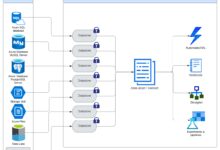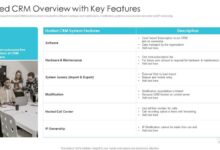B2B Lead Management CRM on Azure Cloud for Small Enterprises: 7 Powerful Strategies to Skyrocket Growth
In today’s hyper-competitive B2B landscape, small enterprises need more than just a good product—they need a smart system. Enter the B2B lead management CRM on Azure cloud for small enterprises: a game-changing solution that combines intelligent lead tracking, seamless scalability, and enterprise-grade security—all within a cost-effective framework.
Why B2B Lead Management CRM on Azure Cloud for Small Enterprises Is a Game Changer

For small businesses aiming to compete with larger players, managing B2B leads efficiently is no longer optional—it’s essential. A cloud-based CRM hosted on Microsoft Azure offers small enterprises the agility, intelligence, and integration capabilities they need to convert leads into loyal customers. Unlike traditional on-premise systems, a B2B lead management CRM on Azure cloud for small enterprises eliminates the need for heavy upfront investment and complex infrastructure.
Scalability Without the Overhead
One of the most compelling advantages of deploying a B2B lead management CRM on Azure cloud for small enterprises is scalability. Azure’s pay-as-you-go model allows businesses to scale resources up or down based on demand. Whether you’re experiencing seasonal spikes or rapid growth, Azure automatically adjusts to your needs.
- Start small and grow without changing platforms.
- Scale compute, storage, and bandwidth seamlessly.
- Reduce IT overhead with automated resource provisioning.
“Azure gives small businesses the same infrastructure advantages as Fortune 500 companies—without the price tag.” — Microsoft Azure Case Studies
Enterprise-Grade Security for Sensitive Data
Small enterprises often worry about data security when moving to the cloud. However, Azure provides robust security features that surpass most on-premise setups. With built-in compliance certifications (like GDPR, HIPAA, and ISO 27001), encryption at rest and in transit, and advanced threat detection, a B2B lead management CRM on Azure cloud for small enterprises ensures that customer data remains protected.
- Role-based access control (RBAC) for precise user permissions.
- Multi-factor authentication (MFA) for secure logins.
- Continuous monitoring via Microsoft Defender for Cloud.
Key Features of a B2B Lead Management CRM on Azure Cloud for Small Enterprises
A successful CRM isn’t just about storing contact information—it’s about orchestrating the entire customer journey. When hosted on Azure, a B2B lead management CRM on Azure cloud for small enterprises gains access to advanced tools that enhance lead capture, nurturing, and conversion.
Automated Lead Capture and Routing
Manual data entry is a thing of the past. Modern CRM systems on Azure can automatically capture leads from multiple sources—website forms, social media, email campaigns, and even LinkedIn—using Azure Logic Apps and Power Automate. Once captured, leads are instantly routed to the right sales representative based on predefined rules (e.g., geography, industry, or lead score).
- Integrate with web forms using Azure Functions.
- Sync with marketing platforms like HubSpot or Mailchimp via API.
- Use AI-powered lead scoring to prioritize high-value prospects.
AI-Driven Insights with Azure Cognitive Services
One of the standout benefits of using Azure is its integration with AI and machine learning tools. By leveraging Azure Cognitive Services, a B2B lead management CRM on Azure cloud for small enterprises can analyze customer behavior, predict buying intent, and recommend next-best actions.
- Predict churn risk using historical interaction data.
- Generate sentiment analysis from email and call transcripts.
- Automatically tag leads based on engagement patterns.
“AI isn’t just for big tech companies anymore. With Azure, even small teams can harness predictive analytics.” — Forbes Technology Council
How to Implement a B2B Lead Management CRM on Azure Cloud for Small Enterprises
Implementing a CRM on Azure may sound daunting, but with the right approach, small enterprises can deploy a fully functional system in weeks—not months. The key is to follow a structured implementation roadmap.
Step 1: Define Your Lead Management Goals
Before writing a single line of code, clarify what you want to achieve. Are you looking to reduce lead response time? Improve conversion rates? Increase cross-selling? Your goals will shape the CRM’s design and functionality.
- Map out your current sales funnel.
- Identify bottlenecks in lead handoff and follow-up.
- Set measurable KPIs (e.g., lead-to-opportunity ratio).
Step 2: Choose the Right CRM Platform
While Azure provides the infrastructure, you still need a CRM application. Options include:
- Dynamics 365 Sales: Native integration with Azure, ideal for end-to-end B2B workflows. Learn more at Microsoft Dynamics.
- Salesforce on Azure: Though Salesforce runs on its own cloud, it can integrate with Azure for data analytics and AI.
- Custom CRM on Azure: Build a tailored solution using Azure App Services, Cosmos DB, and Power Platform.
For small enterprises, Dynamics 365 is often the best fit due to its seamless Azure integration and modular pricing.
B2B lead management CRM on Azure cloud for small enterprises – B2B lead management CRM on Azure cloud for small enterprises menjadi aspek penting yang dibahas di sini.
Step 3: Integrate with Existing Tools
A CRM is only as powerful as its integrations. Use Azure API Management and Logic Apps to connect your CRM with:
- Email platforms (e.g., Outlook, Gmail)
- Marketing automation tools (e.g., Marketo, Pardot)
- ERP systems (e.g., SAP, NetSuite)
- Customer support software (e.g., Zendesk)
These integrations create a unified view of the customer, eliminating data silos.
Cost Analysis: Is a B2B Lead Management CRM on Azure Cloud for Small Enterprises Affordable?
One of the biggest misconceptions is that cloud CRM systems are expensive. In reality, a B2B lead management CRM on Azure cloud for small enterprises can be more cost-effective than traditional software.
Breakdown of Typical Costs
Let’s examine a realistic monthly cost scenario for a 10-person sales team:
- Dynamics 365 Sales Professional: $65/user/month = $650
- Azure App Service (CRM Hosting): ~$100/month
- Azure Database (Cosmos DB or SQL): ~$80/month
- Azure AI Services (optional): ~$50/month
- Power Automate/Logic Apps: ~$20/month
Total: ~$900/month
Compare this to a legacy on-premise CRM, which could cost $20,000+ in initial setup and $5,000/year in maintenance.
Hidden Savings You Might Not Expect
Beyond direct costs, small enterprises save in several indirect ways:
- Reduced IT staffing needs due to Azure’s managed services.
- Fewer data breaches thanks to Azure’s proactive security.
- Higher sales productivity from automated workflows.
- Lower downtime with 99.9% uptime SLA.
“Every dollar saved on IT infrastructure is a dollar reinvested in growth.” — Harvard Business Review
Real-World Success: Small Enterprises Using B2B Lead Management CRM on Azure Cloud
Theoretical benefits are great, but real-world results matter more. Let’s look at two small enterprises that transformed their sales operations using a B2B lead management CRM on Azure cloud for small enterprises.
Case Study 1: TechSolve Inc. (B2B SaaS Provider)
TechSolve, a 15-person SaaS company, struggled with lead leakage and slow follow-ups. After deploying Dynamics 365 on Azure with Power Automate workflows, they achieved:
- 40% reduction in lead response time.
- 28% increase in conversion rate.
- 35% decrease in manual data entry.
By using Azure Logic Apps to sync leads from their website and LinkedIn Ads, TechSolve now nurtures prospects automatically and assigns them to reps in real time.
Case Study 2: GreenBuild Materials (B2B Manufacturing)
GreenBuild, a regional supplier of eco-friendly building materials, needed better coordination between sales and operations. They built a custom CRM on Azure using .NET, Cosmos DB, and Power BI.
B2B lead management CRM on Azure cloud for small enterprises – B2B lead management CRM on Azure cloud for small enterprises menjadi aspek penting yang dibahas di sini.
- Integrated CRM with their inventory system via Azure API Management.
- Used Power BI dashboards to track lead sources and sales performance.
- Automated quote generation using AI models trained on Azure Machine Learning.
Result: 50% faster quote turnaround and a 22% increase in repeat business.
Common Challenges and How to Overcome Them
Even with Azure’s advantages, small enterprises may face hurdles when adopting a B2B lead management CRM on Azure cloud for small enterprises. Awareness and preparation are key.
Challenge 1: Resistance to Change
Sales teams often resist new systems, fearing complexity or increased workload. To overcome this:
- Involve users in the design process.
- Provide hands-on training with real scenarios.
- Start with a pilot group before full rollout.
Challenge 2: Data Migration Complexity
Moving data from spreadsheets or legacy systems can be messy. Azure Data Factory and Azure Migrate simplify this process by automating ETL (Extract, Transform, Load) workflows.
- Validate data quality before migration.
- Use staging environments to test data integrity.
- Keep legacy data accessible during transition.
Challenge 3: Integration with Third-Party Tools
Not all tools play nicely together. Use Azure API Management to create secure, standardized interfaces between your CRM and external apps.
- Document all API endpoints and authentication methods.
- Monitor API performance with Azure Monitor.
- Implement rate limiting to prevent overloads.
Future-Proofing Your B2B Lead Management CRM on Azure Cloud
Technology evolves fast. To ensure your B2B lead management CRM on Azure cloud for small enterprises stays relevant, plan for the future.
Leverage Azure’s Innovation Pipeline
Microsoft continuously updates Azure with new features. Stay ahead by adopting emerging tools like:
- Azure OpenAI Service: Integrate GPT models for automated email drafting and chatbot support.
- Azure Digital Twins: For B2B companies in manufacturing or logistics, model customer environments for better solutioning.
- Microsoft Copilot for Sales: AI assistant that summarizes customer interactions and suggests actions.
Adopt a Modular, API-First Architecture
Build your CRM with microservices and APIs so you can swap components without overhauling the entire system. For example, if you start with Dynamics 365 but later want to switch to a custom solution, an API-first design makes migration smoother.
- Use RESTful APIs for all internal and external communications.
- Containerize services with Azure Kubernetes Service (AKS).
- Implement CI/CD pipelines using Azure DevOps.
Best Practices for Maximizing ROI on Your B2B Lead Management CRM on Azure Cloud
Deploying a CRM is just the beginning. To get the most value, follow these best practices.
1. Align CRM Goals with Business Strategy
Your CRM should support your overall business objectives. If your goal is market expansion, configure the CRM to track regional lead performance. If it’s customer retention, focus on churn prediction and renewal workflows.
2. Train, Then Retrain
Initial training isn’t enough. Schedule quarterly refreshers and create a knowledge base using Microsoft SharePoint or Azure Static Web Apps.
B2B lead management CRM on Azure cloud for small enterprises – B2B lead management CRM on Azure cloud for small enterprises menjadi aspek penting yang dibahas di sini.
3. Monitor and Optimize Continuously
Use Azure Monitor and Application Insights to track CRM performance. Set up alerts for slow queries, failed integrations, or user inactivity.
- Review lead conversion metrics monthly.
- A/B test different lead routing rules.
- Optimize database indexing for faster searches.
Conclusion: Why Every Small Enterprise Should Consider This Solution
The B2B lead management CRM on Azure cloud for small enterprises isn’t just a technological upgrade—it’s a strategic advantage. It empowers small teams to operate with the precision and intelligence of much larger organizations. From automated lead routing to AI-driven insights, from enterprise-grade security to cost-effective scalability, Azure provides the foundation for sustainable growth. By implementing a well-structured CRM on Azure, small enterprises can close more deals, retain more customers, and future-proof their sales operations.
What are the main benefits of using a CRM on Azure for small B2B companies?
The main benefits include scalability, enterprise-grade security, AI-powered insights, seamless integration with existing tools, and cost efficiency. Azure’s pay-as-you-go model allows small enterprises to start small and grow without heavy upfront investment.
Can small businesses afford a B2B lead management CRM on Azure?
Yes. With modular pricing, managed services, and no need for on-premise hardware, a B2B lead management CRM on Azure cloud for small enterprises is often more affordable than traditional CRM systems. Total costs can start as low as $900/month for a 10-person team.
Is it difficult to migrate from an old CRM to Azure?
Not necessarily. Azure provides tools like Azure Data Factory and Azure Migrate to automate data migration. With proper planning and staging, the transition can be smooth and low-risk.
Which CRM platform works best with Azure?
Microsoft Dynamics 365 is the most seamless choice due to native integration. However, custom CRMs built on Azure App Services or third-party platforms like Salesforce (via API) are also viable options.
How does AI improve lead management on Azure?
B2B lead management CRM on Azure cloud for small enterprises – B2B lead management CRM on Azure cloud for small enterprises menjadi aspek penting yang dibahas di sini.
Azure’s AI services enable predictive lead scoring, sentiment analysis, automated follow-ups, and intelligent recommendations. These capabilities help sales teams prioritize high-value leads and improve conversion rates.
Further Reading:



